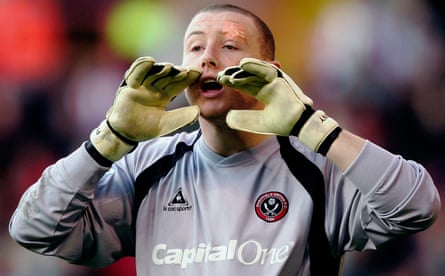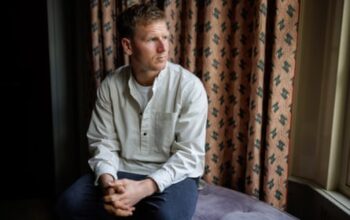O
Over the years, players in England have been given lengthy bans, lasting for months, for a variety of surprising offenses. These include failing and skipping drug tests, participating in betting and physical altercations such as biting and fighting, requesting to switch teams without permission, not following proper procedures before switching teams, and refusing to play for their current team. Other reasons for bans include verbally abusing the referee, physically assaulting the referee, and disregarding the referee’s authority. Some players have even been banned for promoting and glorifying violence – a notable example being Vinnie Jones, whose four-month ban for publishing a guide on how to harm opponents was ultimately suspended. Acts such as stamping, elbowing, and performing flying kung-fu kicks have also resulted in players being banned. Ivan Toney’s journey in the past eight months has been similar to those of others who have faced these consequences.
Four goals, including a hat-trick against Southampton’s Under-23s, in two warmup games suggest that he will return with a finisher’s touch undimmed, but it is clear this has been a difficult journey. “There was a stage where I fell out of love with football a bit,” he said last week. “Football’s all that I know really, it’s what I’m used to. Missing the game for a while and not being around my teammates was tough.”
Danny Cadamarteri, who was banned for six months in 2006 for testing positive for ephedrine in the flu medicine Night Nurse, found this all too familiar. He explains, “Being immersed in football from a young age, you become institutionalized. Your daily routine, banter, and camaraderie all revolve around the sport. Then suddenly you’re not around the same group of people anymore and it’s quite a shock. To be honest, it can be a lonely place. You feel isolated. While a marathon runner may be used to training alone and keeping themselves mentally occupied, a footballer is used to being in a dressing room with their teammates. When that’s taken away, it becomes a solitary existence.”
In September 2009, Paddy Kenny, who was then playing for Sheffield United, received a nine-month ban after testing positive for ephedrine. He shares that training alone was extremely challenging and mentally taxing during this time. For over seven months, he had to train by himself and it was difficult to find ways to fill his time. Losing the ability to play the sport he had been doing for many years was a huge change in routine and he struggled with it. Saturday afternoons were particularly difficult for him as he would look at the results of the games. He tried not to think about them too much, but being separated from his team made it hard to distance himself from it all.
Staying in shape without access to your club’s training ground can be a difficult task. Charlie Mitten, a Manchester United player who was suspended for six months in 1951 for playing in Colombia without permission, ended up playing for a pub team called the Spinners Arms in a Sunday League match at the Papermakers Hotel in Lower Broughton. Mitten expressed his frustration at not being able to compete in official games, stating that although he had been working out in the park, nothing could replace the experience of playing in a real match.
Cadamarteri had to come up with fresh methods to inspire himself during individual training sessions. He explains, “I’m naturally competitive, and each day I’m aiming to outdo my teammates. But then all of a sudden, who is pushing me, who is motivating me, who am I trying to beat? How do I motivate myself?” However, he was determined to start strong and return to his passion that he had been unable to pursue.
Toney resumed training with Brentford in mid-September and completed a 16-week training regimen that culminated in two B-team games. In contrast, Kenny had only six weeks to prepare for matches after being permitted to return to Bramall Lane. “Those six weeks when I returned to training were challenging. I had to work hard to get back into shape,” he explains.
Upon returning to my first game, I couldn’t help but wonder: “How will I perform? Am I fully prepared?” The mental impact of being away from the game was uncertain. However, in the first few minutes, I received a through-ball and was able to quickly react and prevent the opposing player from scoring. This moment reassured me that I was fully prepared for the game.

Kenny was able to return for Sheffield United’s final two games of the season in April 2010 after his ban expired. He performed well, earning two clean sheets and being named man of the match in the first game.
“Skip the promotion for the newsletter.”
after newsletter promotion
Kenny, similar to Toney, went back to the familiar setting of a club he had previously been a part of for many years. Cadamarteri was let go by Bradford City while serving a ban and, after it ended, appeared in two matches for Grays Athletic in what is now known as the National League before being recruited by Leicester. “It was simpler for me in a sense because I wasn’t joining an established team, I was starting fresh,” he explains.
“The two matches that I played for Grays were extremely advantageous in helping me regain my touch and game strategy, as well as getting my cardio back after a break. While you can run all you want, it does not compare to the stop-and-go nature of the game itself. These two games enabled me to immediately perform at my best when I arrived in Leicester.”
It is doubtful that Toney will lack motivation. In 2022, Rio Ferdinand, who was banned for eight months in 2003 for missing a drug test, expressed his negative feelings towards the Football Association and those who supported his ban. He used this hatred and bitterness as fuel to train harder and more frequently during his ban, despite people doubting his abilities.
Source: theguardian.com


